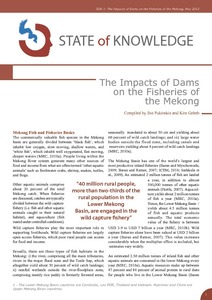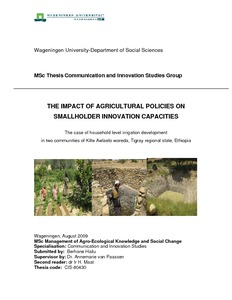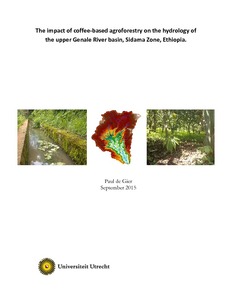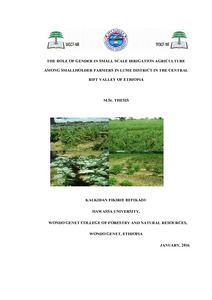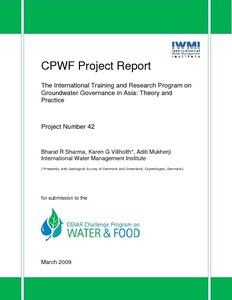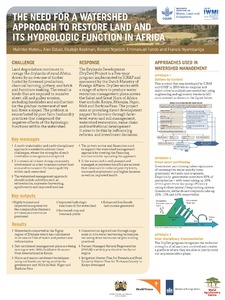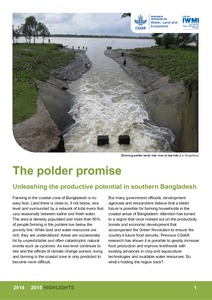The Impacts of Dams on the Fisheries of the Mekong (English Language)
A comprehensive literature review on current state of knowledge on the impacts of dams on Mekong fisheries. Covers 'fisheries basics', impact of dams on fish migration, flood pulse, biodiversity, fish habitats, aquaculture production and reservoir fisheries.

